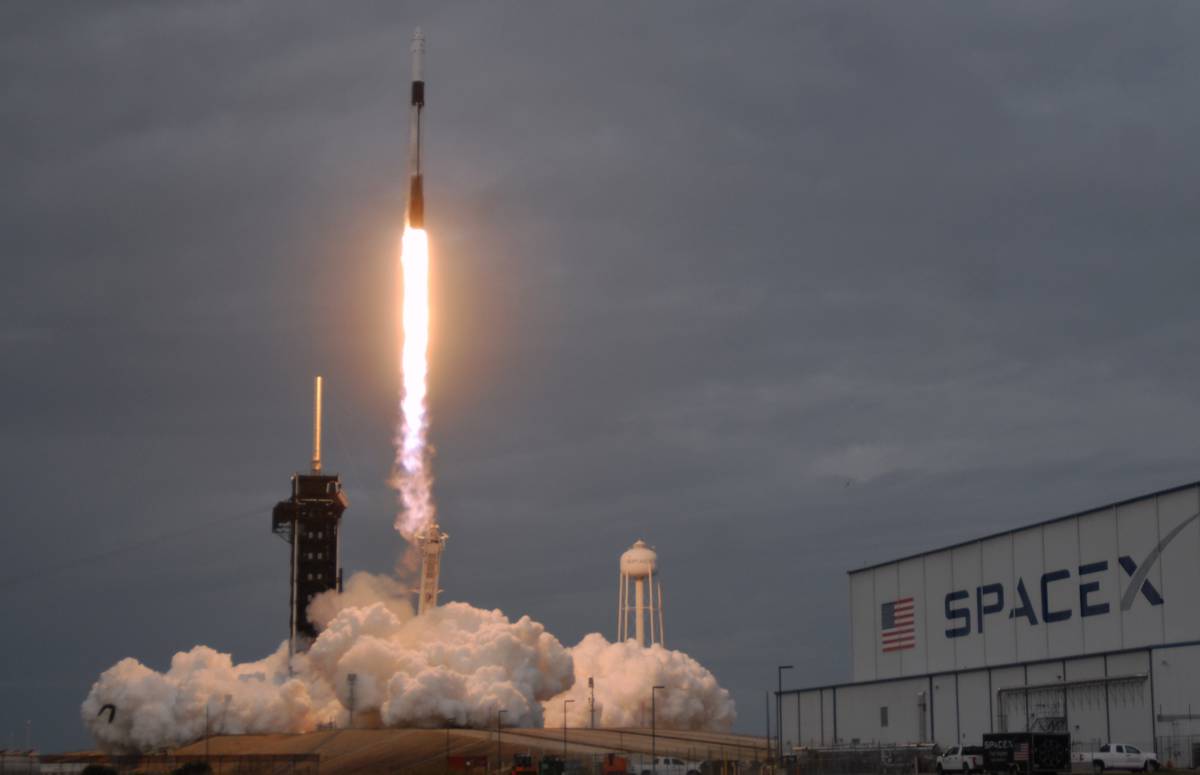Turkey's inaugural human spaceflight project, part of the Axiom Mission 3 (Ax-3), carrying astronaut Alper Gezeravcı to the International Space Station (ISS), commenced at 00:49 Turkish Standard Time last night.
Ax-3's flight, initially scheduled to start yesterday, was postponed to today for final checks.
The SpaceX Dragon spacecraft, transporting the crew of "Axiom Mission 3," including Gezeravcı, was launched from NASA's Kennedy Space Center Launch Complex 39A in Florida, using the SpaceX Falcon 9 rocket.
A multinational crew, partaking in the commercial space flights, conducts the Axiom Mission 3 (Ax-3). Alongside Gezeravcı, the crew includes the mission commander, former ISS commander Michael López-Alegría from the United States, pilot Colonel Walter Villadei from the Italian Air Force, and combat pilot Marcus Wandt from the Swedish Royal Air Force.
Gezeravcı, among four astronauts, will conduct 13 experiments prepared by universities and research institutions during his 14-day stay on the International Space Station. These experiments range from cancer immune cells to various plants like algae and propolis.
Alper Gezeravcı's background
Born in Silifke in 1979, Gezeravcı completed his education in Electronic Engineering at the Air Force Academy. With 15 years of flight experience in various aircraft, including T-41, SF-260, T-37, T-38, F-5, KC-135, and F-16, he started his career in the Turkish Air Force. Gezeravcı also served as a captain pilot for seven years at Turkish Airlines. His latest assignment was as a pilot colonel at the 10th Main Jet Base Command in Adana.
About Axiom Space
Established in 2016, Axiom Space organized its first space flight to the International Space Station under the name "Axiom Mission 1" in 2022. The company aims to establish its own space station by the end of the 2020s. It employs former NASA astronauts and managers.
What does "Axiom Mission 3" include?
This maiden spaceflight to the International Space Station (ISS), coded Ax-3, featuring an all-European crew, redefines the trajectory for low Earth orbit. Axiom Space's website states that Ax-3 opens a new era for the participation of countries in the international spaceflight community for the development of exploration and research in the microgravity field, as well as settling in low Earth orbit.
Who can conduct space flights?
Anyone who can afford it can participate in space flights organized by the United States.
How much does a space flight cost?
For a week-long journey to the International Space Station organized by Axiom Space, the cost per person is $55 million. Of this amount, $10 million per private astronaut goes to NASA for planning, commissioning, communication services, etc. Additionally, $2,000 per person per day is paid for meals.
(AEK/VK)






